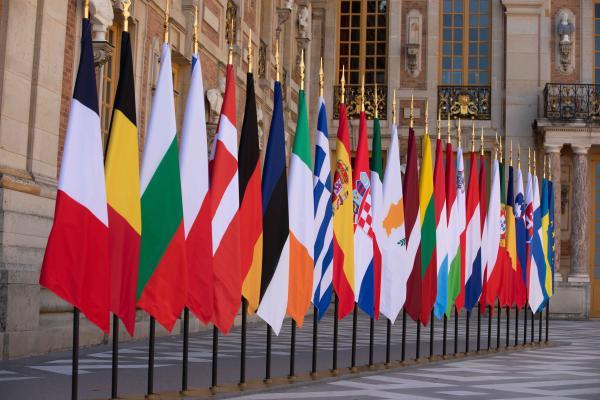
- EIB Group ready to use its experience as climate bank to accelerate green transformation and increase energy efficiency and security.
- EU bank is preparing further support for Ukraine and Neighbouring Countries, in particular those hosting refugees fleeing the war.
- EIB is disbursing EUR 668 million to fund emergency needs in Ukraine. In addition, it is looking at ways to accelerate delivery of an addition EUR 1.3 billion of investment in the country.
Speaking at the informal EU Leaders’ meeting in Versailles today, the President of the European Investment Bank (EIB) Werner Hoyer offered the EIB Group’s support to massively scale up investment into a green and independent EU energy system.
President Hoyer outlined the challenges ahead, stressing the need to:
- alleviate the price and income consequences of a new and global supply shock;
- reduce imports of Russian gas, while rebuilding inventories for next winter;
- integrate energy systems much more strongly and build a collective energy security doctrine;
- share the cost of welcoming refugees from Ukraine; and
- lay the foundations for a common defence policy.
President Hoyer emphasized that “while EIB cannot address all of these challenges, we can help address some of these issues, in a very targeted, Europe-wide and cost-efficient way”.
“Specifically when it comes to mobilizing additional investment in new climate technologies, the scaling of green energy sources as well as the acceleration of investments in energy efficiency measures, the EIB Group has both the experience and expertise to make a real difference”, President Hoyer said at the meeting.
The EIB Group is the EU’s climate bank and the biggest investor in climate action worldwide. It will support €1 trillion of investments in climate action and environmental sustainability in the critical decade from 2021 to 2030. President Hoyer said that the EIB Group is ready to support short-term measures to help in the current energy crisis, but added that “the best use of the EU Bank at the current juncture will be to provide a strong stimulus for strategic investments in the EU’s strive for carbon neutrality”.
President Hoyer also pointed to the EU bank’s considerable experience during the 2015 refugee crisis through the European Resilience Initiative, supporting host and transit countries to cope with large migrant flows. The EIB is already working with partner EU institutions, as well as national and local authorities, national promotional institutions and other counterparties to make financial and technical assistance urgently available to countries and regions affected by the influx of refugees fleeing the war in Ukraine.
The EIB has already started to disburse emergency funding of €668 million to the Ukraine this week, as part of the EIB’s Ukraine Solidarity Urgent Response approved by the EIB Board of Directors on 4 March. This disbursement benefits from an EU guarantee under the External Lending Mandate and complements other initiatives announced by EU institutions.


